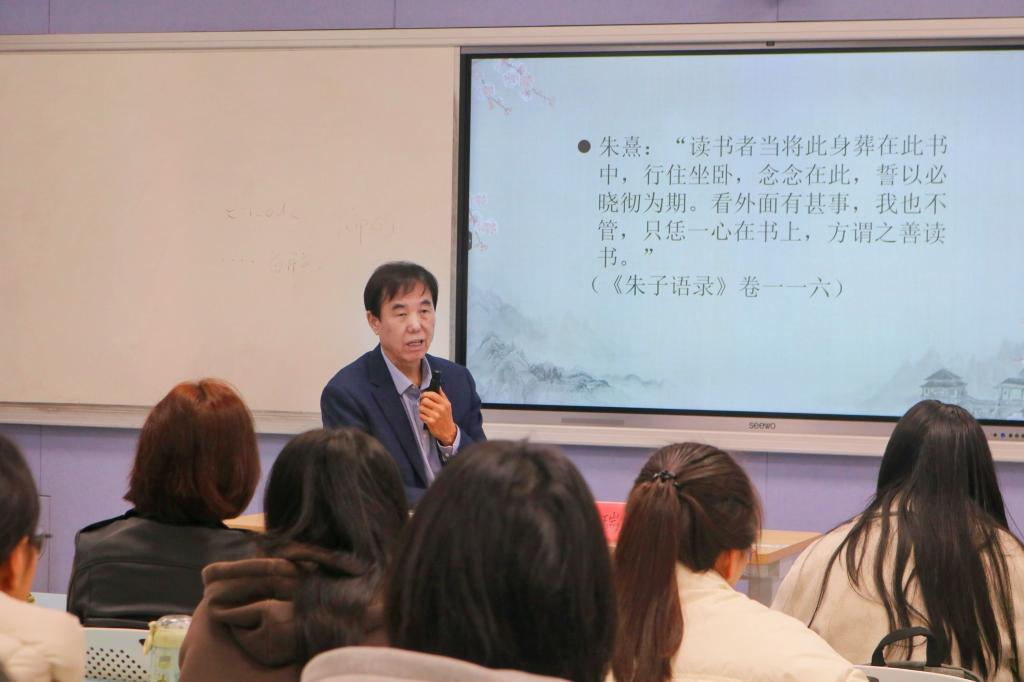Professor Zhan Furui, former Director of the National Library of China and former Secretary of the CPC Committee of Hebei University, delivered an academic lecture titled “Ancient Chinese Scholars” in Classroom 1104 at the invitation of the School of Humanities on the morning of March 31. The event was presided over by Li Jianjun, Vice President and Member of the CPC TU Committee.

Professor Zhan Furui delivers the lecture
Professor Zhan began by analyzing the purpose of reading among ancient Chinese scholars. While acknowledging that some pursued scholarly endeavors for fame and fortune, he emphasized that most regarded reading as a pathway to moral cultivation and enlightenment. Whether exploring governance principles in Confucian classics or seeking ideal relationships between individuals and society through the teachings of Confucius and Mencius, scholars anchored their conscience in texts. Their pursuit, he noted, was ultimately a quest for spiritual tranquility.
Next, Professor Zhan highlighted the scholar-official class, whose motto—“cultivate virtue in obscurity, serve the world in prominence”—embodied both an innate sense of social responsibility and a profound historical mission. He cited examples from Chinese history: righteous figures who braved political turmoil to reform society, and steadfast scholars who maintained their ideals despite poverty, finding joy in simplicity.
Professor Zhan then distilled the essence of ancient scholars’ character into four words: dignity, integrity, pride, and resilience. He argued that in today’s materialistic world, the scholar-official tradition—marked by its refusal to bow to power and its commitment to independent thought—remains a vital moral force. He also analyzed the cultural practices of “music, chess, calligraphy, painting, poetry, and wine” among ancient literati, framing them not merely as personal hobbies but as symbols of the fusion between art and daily life in scholar culture. Concluding his lecture, Professor Zhan critically examined the negative aspects of traditional scholar culture, such as blind loyalty, rigid adherence to mediocrity, and excessive reverence for antiquity, offering a balanced analysis of its complexities.
The lecture provided a platform for academic exchange and deepened attendees’ understanding of traditional Chinese culture. Embracing the spirit of “pursuing breadth without neglecting detail, and striving for excellence while upholding moderation,” faculty and students would approach their work and studies with greater reflection and dedication, aiming to tread steadily on their academic and professional paths.